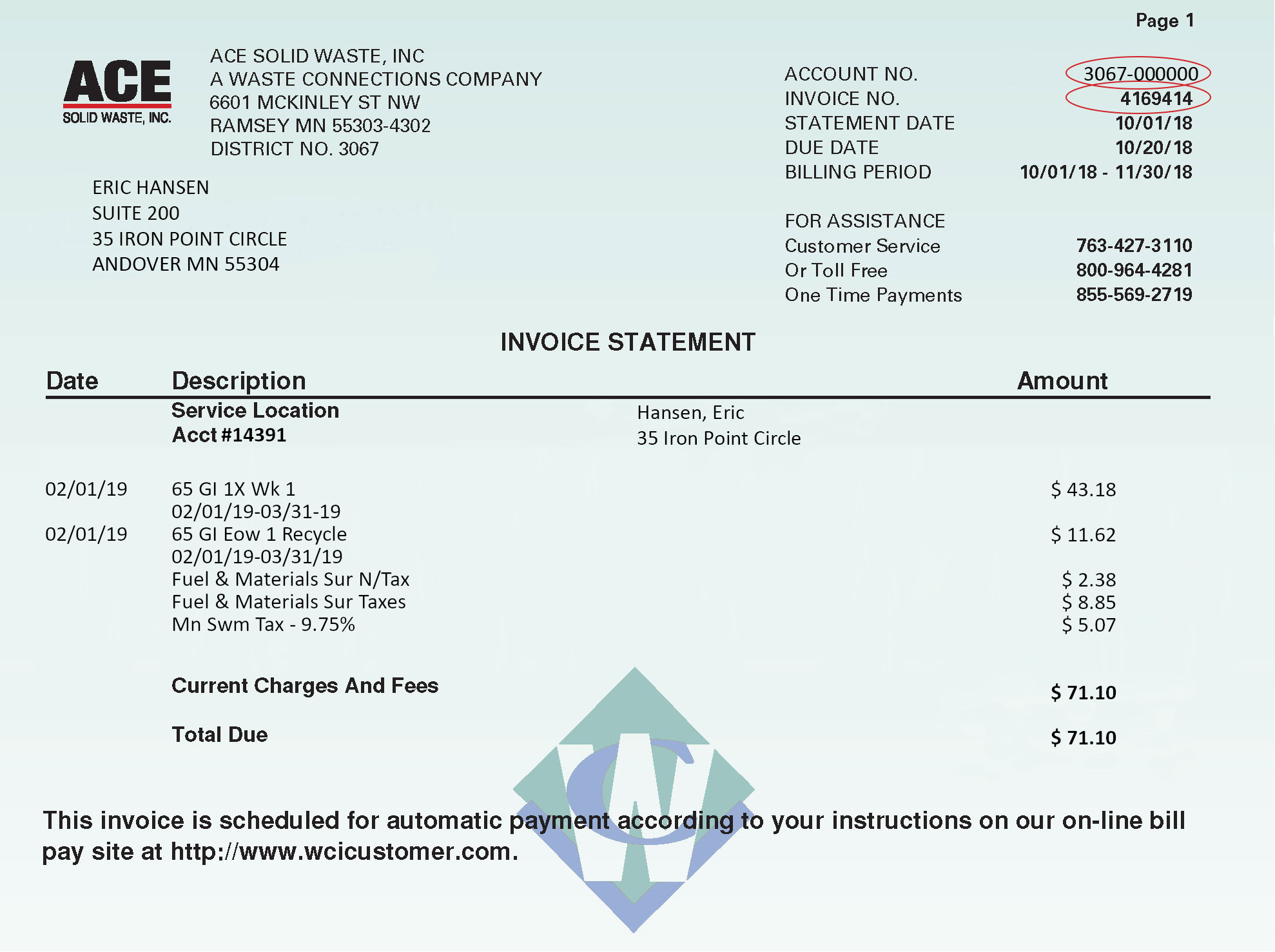Ace Solid Waste Management: The Ultimate Guide To Transforming Waste Into Wealth
Hey there, folks! Let's dive right into something that’s been bugging all of us—literally. Solid waste management has become one of the most pressing issues in our modern world, and guess what? It’s not just about throwing garbage into bins anymore. We’re talking about a smarter, greener, and more efficient approach to handling all that trash. So, if you’re looking to ace solid waste management and turn your waste into wealth, you’re in the right place. This guide is packed with actionable tips, expert insights, and real-world examples to help you tackle this challenge head-on.
Now, before we jump into the nitty-gritty details, let’s talk about why solid waste management matters. Did you know that the average person generates around 4.5 pounds of trash every single day? Multiply that by the global population, and you’ve got yourself a massive problem. But here’s the good news: with the right strategies and tools, we can transform this problem into an opportunity. By acing solid waste management, we can reduce environmental impact, save resources, and even make a profit. Sounds pretty cool, right?
So, whether you're a homeowner looking to reduce your carbon footprint, a business owner aiming to implement sustainable practices, or a city planner trying to solve urban waste challenges, this article has got you covered. Let’s get started and learn how to master the art of waste management. Trust me, it’s easier than you think!
Read also:Anjli Arora Porn Videos
Table of Contents
- What is Solid Waste Management?
- Importance of Ace Solid Waste Management
- Types of Solid Waste
- Strategies for Effective Waste Management
- Innovative Technologies in Waste Management
- Case Studies of Successful Waste Management
- Challenges in Solid Waste Management
- Solutions to Common Waste Management Issues
- Tips for Individuals and Communities
- Future of Solid Waste Management
What is Solid Waste Management?
Alright, let’s break it down. Solid waste management is basically the process of collecting, transporting, treating, and disposing of solid waste in a way that minimizes harm to the environment and human health. But here’s the kicker—it’s not just about getting rid of trash; it’s about doing it responsibly. Think of it like this: every time you toss something into the bin, you’re making a decision that affects the planet. That’s why acing solid waste management is so important.
There are different types of solid waste, and each requires its own set of management practices. From household waste to industrial waste, every category has unique challenges and solutions. By understanding what solid waste management entails, we can start making smarter choices about how we handle our trash. And trust me, there’s a lot more to it than just throwing things away.
Why Solid Waste Management Matters
Here’s the deal: improper waste management can lead to serious environmental and health issues. Landfills overflowing with plastic, toxic chemicals leaching into the soil, and greenhouse gases being released into the atmosphere are just a few examples of what happens when we don’t manage our waste properly. But with the right strategies, we can turn these problems into opportunities for innovation and sustainability.
Importance of Ace Solid Waste Management
Let’s talk about why mastering solid waste management is so crucial. First and foremost, it helps protect the environment. By reducing the amount of waste that ends up in landfills, we can minimize pollution and conserve natural resources. But that’s not all—ace solid waste management also has economic benefits. Recycling and reusing materials can create jobs and generate revenue, turning waste into a valuable resource.
Moreover, effective waste management improves public health. When waste is managed properly, it reduces the risk of diseases caused by exposure to harmful substances. It also enhances the overall quality of life in communities, making them cleaner, safer, and more pleasant places to live. So, whether you’re motivated by environmental, economic, or social reasons, acing solid waste management is a win-win situation.
Types of Solid Waste
Now that we’ve covered the basics, let’s dive into the different types of solid waste. There are several categories, each with its own characteristics and management requirements:
Read also:Whats The Fuss About Fipfak Your Ultimate Guide
- Municipal Solid Waste (MSW): This includes everyday items like food scraps, packaging, and household items.
- Industrial Waste: Waste generated by manufacturing processes, often containing hazardous materials.
- Agricultural Waste: Waste from farming activities, such as crop residues and animal manure.
- Construction and Demolition Waste: Materials from building projects, like concrete, wood, and metal.
- Hazardous Waste: Waste that poses a risk to human health or the environment, such as chemicals and batteries.
Understanding these categories is key to developing effective waste management strategies. Each type requires specific handling and disposal methods to ensure safety and sustainability.
Strategies for Effective Waste Management
So, how do we ace solid waste management? It all starts with implementing the right strategies. Here are some proven methods to help you manage waste effectively:
Reduce, Reuse, Recycle
The classic three Rs are still the foundation of effective waste management. By reducing the amount of waste we produce, reusing items whenever possible, and recycling materials, we can significantly cut down on the amount of trash that ends up in landfills.
Waste Segregation
Separating waste at the source is crucial for efficient management. By sorting waste into different categories—organic, recyclable, and non-recyclable—we can ensure that each type is handled appropriately.
Composting
For organic waste, composting is a fantastic solution. It not only reduces the amount of waste but also produces nutrient-rich soil that can be used for gardening and agriculture.
Innovative Technologies in Waste Management
Technology is playing a huge role in revolutionizing waste management. From smart bins that monitor waste levels to advanced recycling systems, there are plenty of innovations making the process more efficient and sustainable. Here are a few examples:
- Smart Waste Management Systems: These systems use sensors and IoT technology to optimize waste collection and disposal.
- Plastic Recycling Innovations: New technologies are being developed to recycle plastic more efficiently, reducing the need for virgin materials.
- Waste-to-Energy Conversion: This process converts non-recyclable waste into energy, providing a renewable source of power.
By embracing these technologies, we can take waste management to the next level and create a more sustainable future.
Case Studies of Successful Waste Management
Let’s take a look at some real-world examples of successful waste management practices. From cities to businesses, there are plenty of success stories that demonstrate the power of effective waste management.
City of San Francisco
San Francisco is a shining example of what can be achieved with a commitment to sustainability. The city has implemented a comprehensive waste management system that includes mandatory recycling and composting, resulting in a landfill diversion rate of over 80%.
Unilever
Unilever, the global consumer goods company, has set ambitious targets to reduce waste and increase recycling. Through innovative packaging designs and recycling programs, they’ve made significant progress toward their sustainability goals.
Challenges in Solid Waste Management
Of course, there are challenges to overcome when it comes to solid waste management. From lack of awareness to insufficient infrastructure, there are several obstacles that need to be addressed. Here are some of the most common challenges:
- Limited Resources: Many communities lack the funding and infrastructure needed for effective waste management.
- Public Awareness: Educating people about the importance of waste management is crucial but can be difficult to achieve.
- Illegal Dumping: This is a major issue in many areas, leading to environmental damage and health risks.
Overcoming these challenges requires collaboration between governments, businesses, and communities. By working together, we can create solutions that address these issues and promote sustainable waste management practices.
Solutions to Common Waste Management Issues
Now that we’ve identified some of the challenges, let’s talk about solutions. Here are a few strategies to tackle common waste management issues:
- Invest in Infrastructure: Building the necessary infrastructure for waste management is essential for long-term success.
- Education and Awareness: Raising awareness about the importance of waste management can lead to behavioral changes and better practices.
- Enforcement of Regulations: Implementing and enforcing regulations can help prevent illegal dumping and ensure compliance with waste management standards.
By addressing these issues head-on, we can create a more sustainable and efficient waste management system.
Tips for Individuals and Communities
So, what can you do to ace solid waste management in your own life? Here are some practical tips for individuals and communities:
- Reduce Waste: Start by reducing the amount of waste you produce. Choose reusable items, avoid single-use plastics, and buy only what you need.
- Recycle Properly: Make sure you’re recycling correctly by checking local guidelines and sorting your waste properly.
- Compost at Home: If you have space, consider setting up a compost bin to handle your organic waste.
By making small changes in our daily lives, we can all contribute to a cleaner, greener planet.
Future of Solid Waste Management
Looking ahead, the future of solid waste management is bright. With advancements in technology, increased awareness, and growing commitment to sustainability, we’re on the verge of a waste management revolution. Here are a few trends to watch:
- Circular Economy: This model focuses on minimizing waste and maximizing the use of resources, creating a closed-loop system.
- AI and Automation: Artificial intelligence and automation are expected to play a bigger role in waste management, improving efficiency and accuracy.
- Global Collaboration: As the world becomes more interconnected, collaboration between countries and organizations will be key to solving waste management challenges.
By embracing these trends, we can create a future where waste is no longer a problem but a resource to be harnessed for the benefit of all.
Kesimpulan
And there you have it, folks! Solid waste management is more than just dealing with trash—it’s about creating a sustainable future for generations to come. By acing solid waste management, we can protect the environment, improve public health, and even boost the economy. So, whether you’re a homeowner, business owner, or city planner, there’s something you can do to make a difference.
Now, it’s your turn. Share this article with your friends and family, leave a comment with your thoughts, and start making changes in your own life. Together, we can turn the tide on waste and create a cleaner, greener world. So, what are you waiting for? Let’s get started!


